Want to be in the loop?
subscribe to
our notification
Business News
DEVELOPMENT BANKS EXTEND ROLE IN GREEN-RELATED LOANS
Major investment banking institutions are seeking opportunities to provide more green loans for Vietnam to support its net-zero transition.
European Investment Bank (EIB) vice president Kris Peeters told VIR when he visited Vietnam last week that the non-profit credit institution and lending arm of the EU is eager to meet with partners in Vietnam to provide more green loans for environmentally friendly projects in various sectors from transport, water treatment, and smart urban development to renewable energy and infrastructure.
“We have been providing loans for seven projects in Vietnam with total loans of €561 million ($602.8 million), and we hope the figure will double in the coming time,” Peeters said.
Last year, the EIB invested over €70 billion ($75.2 billion) in many green projects worldwide.
“We want to increase our investment portfolio and Vietnam is also on our priority list, as the country’s economy is going green, meaning the growing need for relevant projects in many sectors,” Peeters said. “Vietnam is an important market for the EIB. It is in critical need of huge investment in infrastructure and is witnessing rapid economic growth, which has been resulting in overloaded infrastructure and lack of energy in the context of a fast-growing population.”
The EIB and Vietnam’s’ Ministry of Finance (MoF) have agreed on a framework loan of €500 million ($536.3 million) for Vietnam to implement goals related to the Just Energy Transition Partnership (JETP). A deal on the loan is expected to be signed in October in Brussels.
“Both sides are working together to complete necessary procedures and specific projects proposed by Vietnam before the signing,” Peeters said.
One of the key purposes for the EIB to come to Vietnam to provide green loans is that Vietnam is now implementing commitments on achieving net-zero emissions by 2050, and is formulating its own resource mobilisation plan to carry out JETP commitments.
Last December, leaders from Vietnam and the International Partners Group (IPG) agreed on the JETP, worth $15.5 billion for Vietnam. Also at that time, Prime Minister Pham Minh Chinh and Minister of Finance Ho Duc Phoc visited the EIB headquarters in Luxembourg to find out what the bank can do to make Vietnam’s ambitions in green investments a reality.
Vietnam is required to publish a JETP plan by November to identify new investment requirements and opportunities in areas like wind, solar, transmission, energy efficiency, storage, electric vehicles, training, and vocational support among others, as well as measures to facilitate the deployment of investment towards delivering Vietnam’s just energy transition.
Currently, the EIB, together with the French Development Agency, the Japan International Cooperation Agency, and KfW, are financing the 1.2GW Bac Ai pumped storage hydropower project under construction in the south-central province of Ninh Thuan.
The project is being developed in two phases by Vietnam Electricity (EVN) with an estimated investment of $909.7 million. Construction commenced in 2020 and the facility is expected to be completed by 2028.
Late last year, Peeters and EVN inked an MoU on cooperation to enable the direct financing of power projects in Vietnam and strengthen partnerships in electricity generation, storage, transmission, distribution and sales, and also covers the energy transition towards decarbonisation. The EIB is also providing loans for Vietnam’s metro line 2 in Ho Chi Minh City and metro line 3 in Hanoi .
Meanwhile, the Asian Development Bank (ADB) and GreenYellow Smart Solutions Vietnam Co., Ltd. last week signed a loan agreement of $13.8 million for rooftop photovoltaic (PV) solar systems to help increase the supply of clean and affordable energy for commercial and industrial consumers in Vietnam.
The financing package comprises a $3 million A loan from ADB’s ordinary capital resources and $10.8 million parallel loans from FMO, responsAbility Fund, and Société Générale, with the ADB as mandated lead arranger.
“The ADB is increasingly focused on mobilising private capital to finance renewable energy projects that the region urgently needs,” said Suzanne Gaboury, ADB director-general for private sector operations. “Solar PV rooftop offers an efficient way for Vietnam to deploy substantial amounts of additional renewable energy capacity while providing reliable, low-cost energy to consumers, which helps to attract and retain business and enhance Vietnam’s global competitiveness.”
Rooftop solar is an emerging form of renewable energy supply in Vietnam, and its adoption in this sector has been hindered by high upfront costs and limited financing channels. With a planned total installed capacity of up to 32.3MW at its peak, this project is set to increase clean energy supply to the sector by at least 31.5 gigawatt-hours annually, reducing over 15,000 tonnes of carbon emissions by 2025.
The ADB said that it is discussing with the IPG on its role within the JETP framework in Vietnam, including contribution through the energy transition mechanism, which is a programme aimed at helping confront the issue of climate change by reducing greenhouse gas emissions in Asia-Pacific.
Source: VIR
Related News
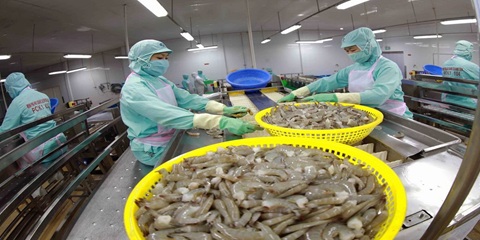
VIETNAM’S SEAFOOD EXPORTS HIT OVER US$10 BILLION IN JAN-NOV
Seafood export revenue in November alone amounted to nearly US$990 million, up 6.6% year-on-year. Key product groups posted solid gains. Shrimp exports rose 11.7% to over US$385 million, supported by strong demand for whiteleg shrimp and lobster. Tra fish shipments increased 9.7% to almost US$197 million, while marine fish, squid, and mollusk exports maintained their recovery.
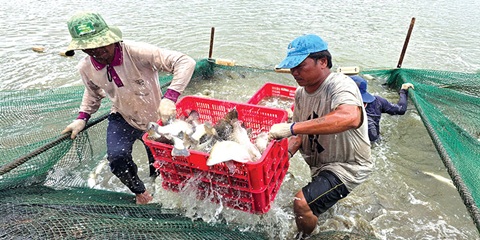
VIETNAM’S AGRO-FORESTRY-FISHERY EXPORTS HIT NEW RECORD IN JAN-NOV
Vietnam’s agro-forestry-fishery export revenue reached an estimated US$64.01 billion in the first 11 months of 2025, up 12.6% year-on-year and surpassing the full-year record of US$62.4 billion set in 2024. Agricultural exports reached US$34.24 billion, up 15% year-on-year, while livestock products brought in US$567.4 million, a 16.8% increase. Seafood exports rose 13.2% to US$10.38 billion, and forestry products earned US$16.61 billion, up 5.9%.

HANOI REPORTS RECORD-HIGH BUDGET REVENUE IN 2025
Hanoi’s budget revenue is estimated to reach VND641.7 trillion in 2025, the highest level ever recorded and nearly 25% above the revised target, according to a report by the municipal government. Data from the city’s socioeconomic performance review shows that total state budget collections in 2025 are projected to reach 124.9% of the adjusted plan and rise 24.9% from 2024, the Vietnam News Agency reported.
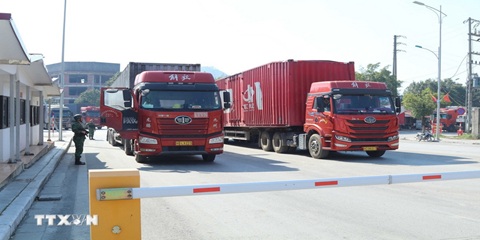
VIETNAM, CHINA TO PILOT TWO-WAY CARGO TRANSPORT AT LANG SON BORDER
Vietnam and China will launch a one-year pilot program on December 10 to allow two-way cargo transport through the Huu Nghi–Youyi Guan international border gates in Lang Son Province, reported the Vietnam News Agency. The Dong Dang-Lang Son Economic Zone Management Board said the trial aims to reduce transport costs and improve customs clearance capacity.
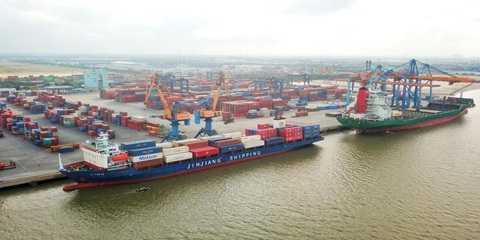
VIETNAM’S IMPORT-EXPORT VALUE NEARS US$840 BILLION IN JAN-NOV
The total value of Vietnam’s imports and exports was nearly US$840 billion between January and November this year, the highest level ever recorded, according to the National Statistics Office. In its latest report on the country’s socio-economic performance, the National Statistics Office highlighted a series of positive economic indicators, with trade emerging as one of the strongest drivers of growth.
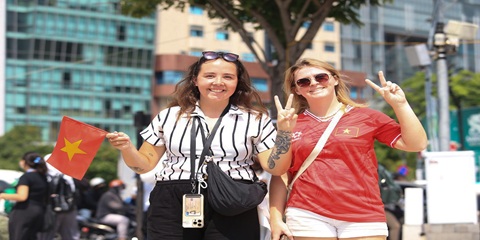
OVER 19 MILLION INTERNATIONAL VISITORS COME TO VIETNAM IN JAN-NOV
Vietnam received more than 19.1 million international visitors in the first 11 months of 2025, a 20.9% increase year-on-year and the highest level ever recorded, according to the National Statistics Office. The figure surpasses the full-year record of 18 million arrivals set in 2019, before the Covid-19 pandemic. Nearly two million foreign visitors arrived in November alone, up 14.2% from October and 15.6% from the same period last year.
























